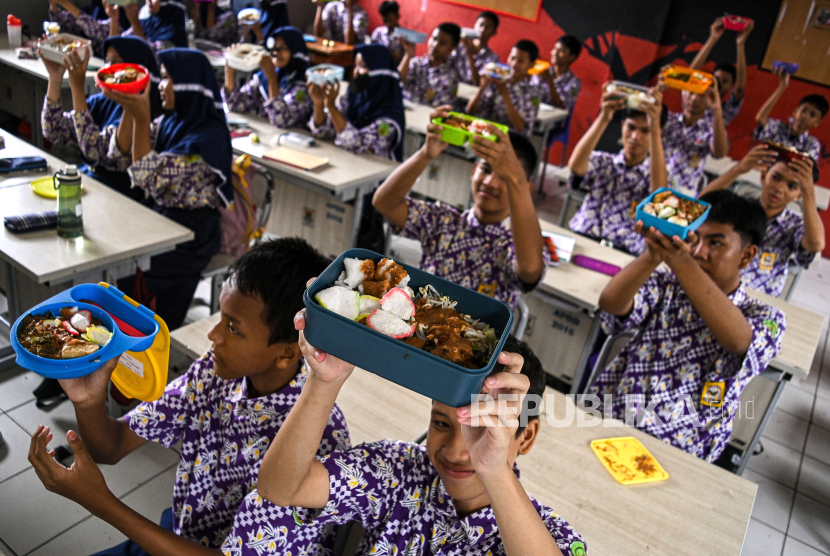REPUBLIKA.COID, JAKARTA -- Institute for Development of Economics and Finance (Indef) highlighted the free lunch or nutritious meal program of president-elect, Prabowo Subianto. The head of the Center of Digital Economy and SMEs Indef Eisha Magfiruha Rachbini said the program requires large funding and has the potential to deliver the country's fiscal deficit.
“This program will significantly increase government spending, preliminary estimates indicate that the budget needs reach Rp 460 trillion or equivalent 7.23 percent of the total state spending in the 2024 state budget which amounts to Rp 3.325.1 trillion,” Eisha said during Indef's public discussion titled “National Awakening, Economic Awakening” in Jakarta, Monday (27/5/2024).
Eisha called this increase in spending the potential to enlarge the fiscal deficit and encourage the government to add to the debt. Eisha said Indonesia's fiscal deficit in 2023 reached 1.65 percent of GDP with a total debt of Rp 347.6 trillion, on the other hand, the national debt had reached Rp 7,700 trillion as of March 2024.
“Adding debt to the program is feared to worsen the fiscal situation and weigh on economic stability,” Eisha said.
The lecturer in Economics, Faculty of Economics and Management of IPB also worries that this program creates fiscal traps or sustainable burdens for the state budget in the future. This is because the government is bound by long-term commitments so it needs to ensure the funding of this program on a sustainable basis without burdening future generations.
“Efficiency concerns related to potential leaks in program implementation as well as a lack of clarity regarding the program's funding source create uncertainty in fiscal management,” Eisha continued.
Eisha said the free lunch program will be successful if it is offset by increased food production. However, in fact, Eisha continued, rice production during January to April 2024 was recorded at 10.71 million tons or a decrease of 2.28 million tons or 17.52 percent compared to the same period last year.
Not only that, Eisha said the program could increase the trade deficit because the costs required for the program would increase imports of foodstuffs and reduce exports. This can lead to an increase in the trade deficit which impacts the exchange rate and foreign exchange reserves of the country.
“This program needs to be carefully considered in the state spending priority process without diverting funds from other programs that matter,” Eisha said.


